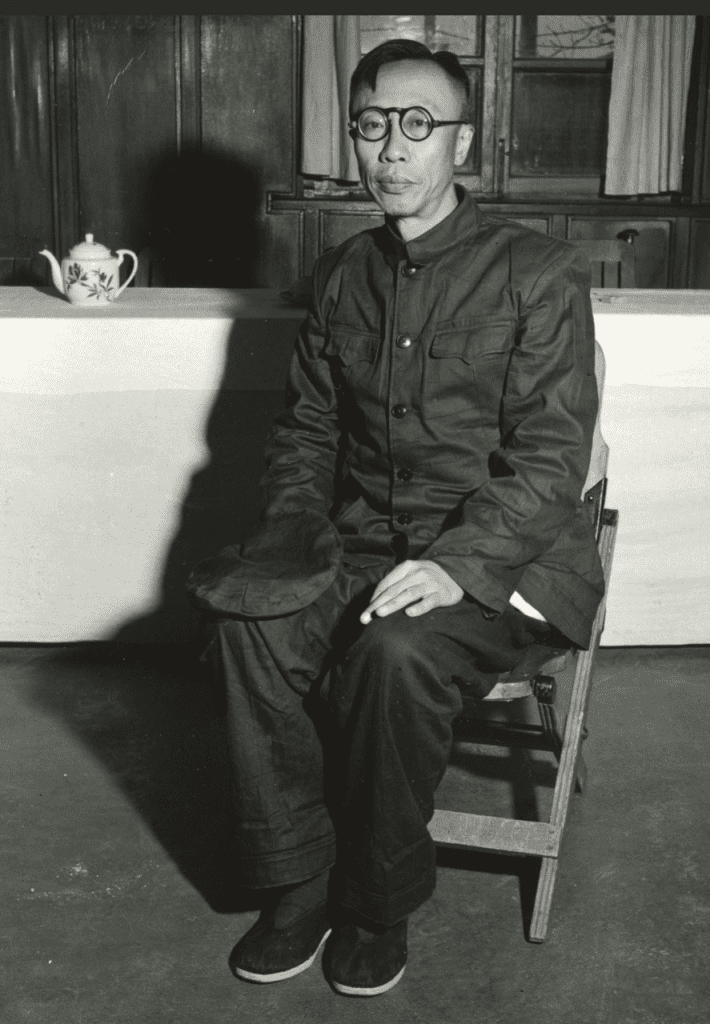Puyi was just two years old when he became emperor of China in 1908. Sitting on the majestic Dragon Throne inside the Forbidden City, he was too young to understand the immense power he was given or the turbulence that awaited him. Born into royalty at the twilight of imperial China, he would grow up witnessing his world collapse piece by piece.
By 1912, the Qing dynasty, China’s last imperial ruling family, had fallen. Although he was allowed to stay in the Forbidden City for many years after his abdication, Puyi’s title meant little. He was emperor in name only. And from that moment on, he lived not as a ruler of destiny, but as a man swept along by the political storms of the 20th century.

From Puppet Ruler to Prisoner
As China struggled through warlord conflicts, revolution, and foreign invasion, Puyi became a figure of great interest to world powers. In the 1930s, Japan seized the opportunity to install him as the puppet ruler of Manchukuo, a Japanese-controlled territory in northeastern China.

For nearly 13 years, Puyi served under the illusion of power. He wore regal robes, lived in palaces, and signed official documents. But he had no real authority. His life was tightly controlled by Japanese officials, and he had little say in decisions that shaped the region.
When Japan was defeated in 1945, Puyi attempted to flee but was captured by Soviet forces. Eventually, he was returned to China and imprisoned as a war criminal. For nine years, he remained behind bars, reflecting on his past and participating in Communist reeducation efforts.
Video:
You Won’t Believe What Happened to the Last Emperor of China #shorts
A New Life in a New China
In a twist few could have imagined, the man who once ruled the Forbidden City was released from prison in 1959 not to reclaim a throne, but to begin life as an ordinary citizen. Under the newly established People’s Republic of China, Puyi was given a fresh start. He was assigned a job as a street sweeper in Beijing, a symbol of both humility and rehabilitation.
On his first day of work, he reportedly became disoriented while navigating the bustling city. Approaching a stranger, he asked for directions and introduced himself by saying, “I’m Puyi, the last Qing emperor.” It was a surreal moment. The man who had once been carried by royal servants through palace halls was now standing alone, seeking help from a passerby.

Gardener of the Nation
Eventually, Puyi found more stability in a job that allowed him peace and solitude. He worked as a gardener at the Beijing Botanical Gardens. Surrounded by plants instead of politics, he spent his final years quietly tending to nature. It was a far cry from his gilded beginnings, but it was a role he seemed to accept with grace.
Video:
The Last Emperor [1987] Official Trailer
Despite his fall from power, Puyi never expressed bitterness. He adapted to the times, formed new friendships, and even married again. He became a citizen of a country that had once imprisoned him, and in doing so, wrote one of the most unexpected final chapters in the history of Chinese royalty.
The Power of Personal Transformation
Puyi died in 1967 from complications related to kidney cancer. He was 61 years old. There was no royal funeral, no state ceremony. He passed away not as an emperor, but as a man remembered for his unlikely evolution.
His life remains one of the most striking examples of transformation in modern history. He experienced extremes that few others ever will from absolute power to public trial, from luxury to labor, from exile to redemption. His story is not simply one of loss, but of adaptation, humility, and the human capacity to change.

A Legacy Beyond the Throne
Today, Puyi is remembered not only as the last emperor of China but also as a man whose life mirrored the tumultuous shifts of a nation. His legacy is preserved in history books, documentaries, and even in the Oscar-winning film The Last Emperor, which brought his incredible journey to global audiences.
His fall from the throne was not the end of his story it was the beginning of a new chapter. Puyi’s life reminds us that history is not always written by those in power. Sometimes, it is shaped by those who learn how to live without it.


